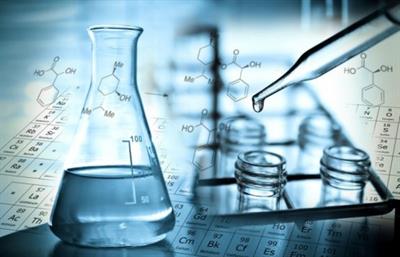Just How to Make Sure Conformity When Utilizing Chemical Products in Your Operations
Just How to Make Sure Conformity When Utilizing Chemical Products in Your Operations
Blog Article
Key Considerations for Choosing the Right Chemical Products to Achieve Reliable Integrated Solutions in Your Procedures
Choosing the proper chemical items for integrated services in procedures calls for a complex technique that includes different critical considerations. From evaluating chemical compatibility to making sure adherence to governing criteria, each aspect plays a crucial role in optimizing operational performance and safety and security.
Understanding Chemical Compatibility

To examine compatibility, one ought to consider factors such as the chemical properties of the materials involved, including pH, focus, temperature, and the existence of contaminations. Utilizing compatibility charts and databases can give valuable insights right into possible communications. Additionally, carrying out small examinations can aid identify unexpected reactions that might not be recorded.
Factors such as moisture, light exposure, and temperature level can affect the security and reactivity of chemical items. By prioritizing chemical compatibility throughout the choice process, companies can enhance operational efficiency, decrease the danger of accidents, and make certain compliance with safety and security protocols.
Reviewing Regulative Conformity
In the complicated landscape of chemical item selection, reviewing regulative compliance is extremely important to guaranteeing not just safety yet also legal adherence. Organizations needs to navigate a myriad of laws, from local and nationwide regulations to international requirements, that control the usage, storage, and disposal of chemical materials. This requires a complete understanding of appropriate guidelines such as the Occupational Safety And Security and Health Administration (OSHA) standards, the Environmental Protection Agency (EPA) guidelines, and the European Union's Registration, Assessment, Authorisation and Limitation of Chemicals (REACH)
When picking chemical items, it is vital to validate that distributors give Safety and security Information Sheets (SDS) that information prospective dangers and managing needs. Furthermore, businesses should validate that the chemicals follow industry-specific laws, which may impose added terms. Non-compliance can cause severe fines, including penalties and operational closures.
Furthermore, organizations should stay upgraded on governing adjustments, as non-compliance can occur from out-of-date methods. Creating a durable conformity strategy, including routine audits and staff member training, can assist make certain adherence to existing laws. Eventually, focusing on governing compliance not just mitigates danger however additionally boosts the organization's reputation and operational efficiency.
Assessing Environmental Impact
Just how can organizations effectively examine the environmental impact of chemical items during the selection procedure? Organizations must start by identifying the prospective risks connected with each chemical, consisting of poisoning, perseverance in the setting, and bioaccumulation capacity.
Furthermore, companies can utilize third-party accreditations and eco-labels that indicate conformity with environmental criteria - Chemical Products. Engaging with providers that prioritize sustainability methods can additionally improve the choice process. It is essential to assess not only the direct impacts of chemical usage however additionally the indirect impacts, such as energy consumption and waste generation
Carrying out life cycle evaluation (LCA) methods can supply comprehensive understandings right into the environmental impact of chemical products, highlighting areas for improvement. By prioritizing transparency and partnership with stakeholders, companies can make informed choices that align with their sustainability objectives while reducing damaging ecological outcomes. This proactive approach ultimately cultivates an extra responsible and eco-conscious operational structure.
Evaluating Cost-Effectiveness
While examining chemical items for functional use, organizations need to additionally consider cost-effectiveness as a vital aspect in the option process. This includes analyzing not just the first purchase rate however likewise the overall cost of ownership, that includes variables such as usage efficiency, maintenance, and disposal costs. Chemical Products. An item that appears inexpensive upfront might incur greater costs in power intake or require even more frequent replacement, inevitably affecting the lower line
Additionally, companies must evaluate the capacity for price savings with maximized formulas that boost efficiency and lower waste. For example, items that call for reduced application rates or supply faster processing times can lead to considerable financial savings over time. It is also vital to take into consideration the influence of regulatory read more compliance costs, as non-compliance can result in penalties and raised functional expenditures.
In addition, companies must examine the long-lasting value originated a fantastic read from the chemical items, including improved high quality, enhanced productivity, and enhanced safety and security. A thorough cost-effectiveness analysis empowers companies to make educated decisions that straighten with both their monetary goals and functional goals, eventually resulting in lasting and effective practices.
Identifying Distributor Dependability
Distributor reliability is paramount when selecting chemical products for procedures, as it straight affects both item high quality and functional effectiveness. A trusted distributor continually supplies top quality products on time, guaranteeing that your processes remain uninterrupted.
Following, take into consideration the vendor's history of conformity with laws and requirements. A trusted distributor needs to have a durable quality assurance program that complies with market guidelines. In addition, examine their ability to provide technological support and item information, which is vital for notified decision-making.

Conclusion
Finally, choosing the appropriate chemical products for incorporated services demands a thorough assessment of numerous crucial variables. Understanding chemical compatibility, making read this certain regulatory compliance, analyzing ecological effects, analyzing cost-effectiveness, and identifying trustworthy suppliers collectively add to notified decision-making. Such a technique not just boosts operational effectiveness and safety and security yet additionally mitigates potential risks. Prioritizing these considerations can result in more sustainable and effective functional techniques in numerous sectors.
Report this page